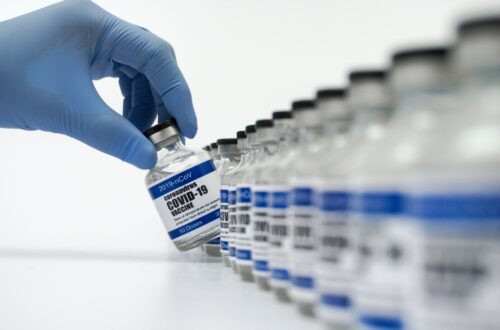
The COVID19 Vaccine – A New Technology
I spent over an hour the other day researching the new COVID19 vaccine and what I discovered was very unsettling to say the least. This vaccine technology has never been used on the human population and is not the same as how current vaccines work such as the flu shot.
It is basically genetically altering how your immune system fights a virus. So instead of injecting you with a dead virus that your body builds antibodies against, you are injected with artificial mRNA sequences created in a lab that the cells recognizes as if they were produced by the body. It is not a proven technology and is being rolled out in under 9 months with no concrete testing and Canada is close to approving it like the UK. They think before Christmas.
I don’t know about you but I am not going to try some new technology that uses genetic technology to fool my immune system and god knows what else they are putting in it. Look up nanotechnology if you want the bigger picture of what the potential implications are.
We need to research this stuff because our government and the media are not explaining any of this to us and they are pushing it on us 24/7.
There are so many more consequences attached to this vaccine as well, including moral issues from a humanitarian perspective. Please don’t walk into this blindly.
>>>>>>>>>>>>>>>>>>>>>>
The following articles contain information regarding the new Pfizer and Moderna vaccine technology and how it works:
Moderna Wants to Transform the Body Into a Vaccine-Making Machine
Many flu vaccines are still grown in chicken eggs. Newer approaches draw on genetic engineering to eliminate the need for whole viruses, but their viral proteins are still grown inside live cells.
The coronavirus vaccines from Moderna Inc., in Cambridge, Mass., and its German rival BioNTech SE propose to immunize people in a radically different way: by harnessing human cells to become miniature vaccine factories in their own right. Instead of virus proteins, the vaccines contain genetic instructions that prompt the body to produce them. Those instructions are carried via messenger RNA, or mRNA.
If the vaccine works as intended, the body will start producing the proteins soon after injection, prompting the immune system to react and build up protective antibodies against them.
How well mRNA vaccines will actually prevent Covid-19 remains unknown. No vaccine based on messenger RNA has ever been approved for any disease, or even entered final-stage trials until now, so there’s little published human data to compare how mRNA stacks up against older technologies. And the vaccines have hardly been free of side effects.
But though DNA vaccines worked in animals, they weren’t successful in initial human trials. It was difficult to get sufficient amounts of DNA into human cells, and when scientists overcame that, the vaccines turned out to be less potent than needed. (They were tried on the most challenging diseases, including HIV.) Over the years research into DNA vaccines has continued, but none has made it to market for humans.
But unlike DNA, a stable molecule, mRNA is notoriously fragile. Numerous enzymes present throughout the body break it down. Making matters worse for vaccine researchers, the immune system is hypervigilant about foreign RNA, identifying and destroying it before it can spur the protein-manufacturing process.
https://www.bloomberg.com/features/2020-moderna-biontech-covid-shot/
How Pfizer and Moderna’s COVID-19 vaccines work: mRNA
https://www.fastcompany.com/90573488/how-pfizers-covid-19-vaccine-works-mrna
What does mRNA do? mRNA produces instructions to make proteins that may treat or prevent disease
https://www.modernatx.com/mrna-technology/science-and-fundamentals-mrna-technology
Originally posted 09 Dec 2020




